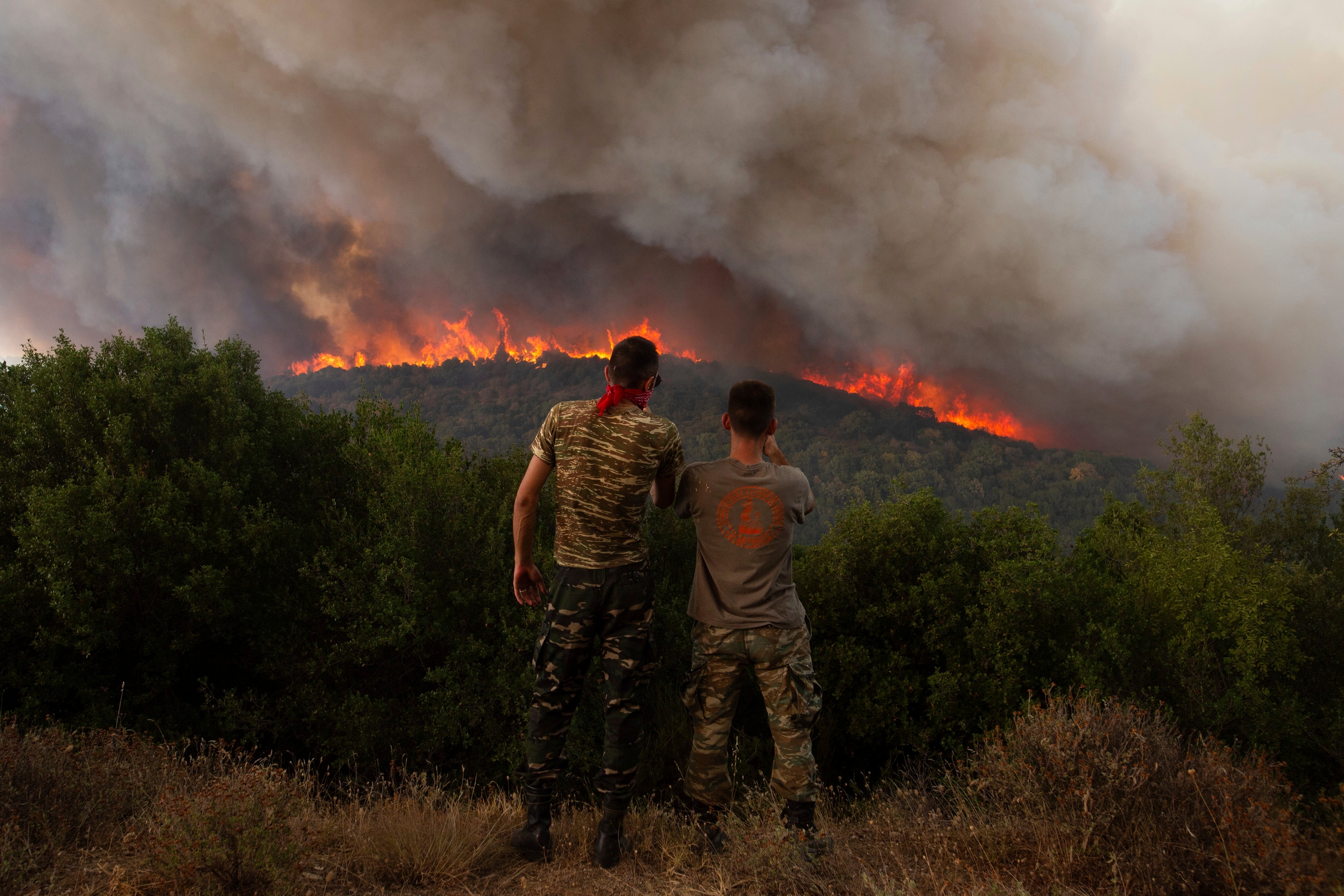Tropical storm hits Caribbean, wildfires rage in Greece. What to know about extreme weather now
Tropical Storm Franklin made landfall Wednesday on the island of Hispaniola shared by the Dominican Republic and Haiti, dumping heavy rains expected to trigger landslides and flooding in both countries

Flames devoured forests and homes as dozens of wildfires raged across the country Wednesday, leaving 20 people dead over the past three days, while major blazes burned in northwestern Turkey near the Greek border and on Tenerife in Spain’s Canary Islands. A major blaze on the northwestern fringe of Athens was torching homes and heading into Parnitha national park, one of the last green areas near the Greek capital. Associated Press photographer Achilleas Chiras captured the march of fire Wednesday through a forest near the village of Sykorrahi in the northeastern Evros region.
Here’s what else is happening related to extreme weather and the climate right now:
—In Pakistan, officials announced that rescuers have evacuated more than 100,000 people from flood-hit areas of eastern Punjab province in the past three weeks. Pakistani authorities are still struggling to overcome the damage caused by massive floods last summer that affected 33 million people and killed 1,739. They caused $30 billion in damage to the country’s economy.
—In the Caribbean, Tropical Storm Franklin made landfall Wednesday on the island of Hispaniola shared by the Dominican Republic and Haiti, dumping heavy rains expected to trigger landslides and flooding in both countries. Forecasters warned it could drop up to 12 inches (30 centimeters) of rain in the Dominican Republic and up to 4 inches (10 centimeters) in Haiti.
—In southwestern Switzerland, police warned Wednesday that a heat wave has increased the risk of falling rock and ice in the Alpine region, where it’s been particularly deadly this year for mountaineers and hikers. Most victims have been foreigners.
—A new study found climate change more than doubled chances of the hot, dry weather conditions that helped fuel unprecedented fires season in eastern Canada that drove thousands from their homes and blanketed parts of the U.S. with choking smoke. Human-caused climate change made the fire season in Quebec — from May through July — 50% more intense than it otherwise would have been, researchers said.
—In Canada, firefighters in a scenic region of British Columbia said Wednesday that heavy rain overnight helped douse wildfires that forced the evacuation of thousands of people from the Canadian province, as the cost of the devastating fires became clearer. Officials in southern British Columbia said 174 properties were partially or totally damaged by the fires that raged for days in the Okanagan Valley threatening towns in the Kelowna area, a summer destination about 90 miles (150 kilometers) north of the U.S. border.
— In Hawaii, authorities pleaded with relatives of the hundreds of people who may be missing after the deadliest U.S. wildfire in more than a century to come forward and give DNA samples. They said the low number of samples provided so far threatens to hinder efforts to identify any remains discovered in the ashes.
—Climate change may force many U.S. farmers and ranchers to use irrigation at a steep cost, The Associated Press reported.
QUOTABLE:
“The population of the Dominican Republic must all be right now, without exception, in their homes, the homes of friends and family, or in shelters.” — Juan Manuel Méndez, emergency operations director
___
Associated Press climate and environmental coverage receives support from several private foundations. See more about AP’s climate initiative here. The AP is solely responsible for all content.
.
Subscribe to Independent Premium to bookmark this article
Want to bookmark your favourite articles and stories to read or reference later? Start your Independent Premium subscription today.
